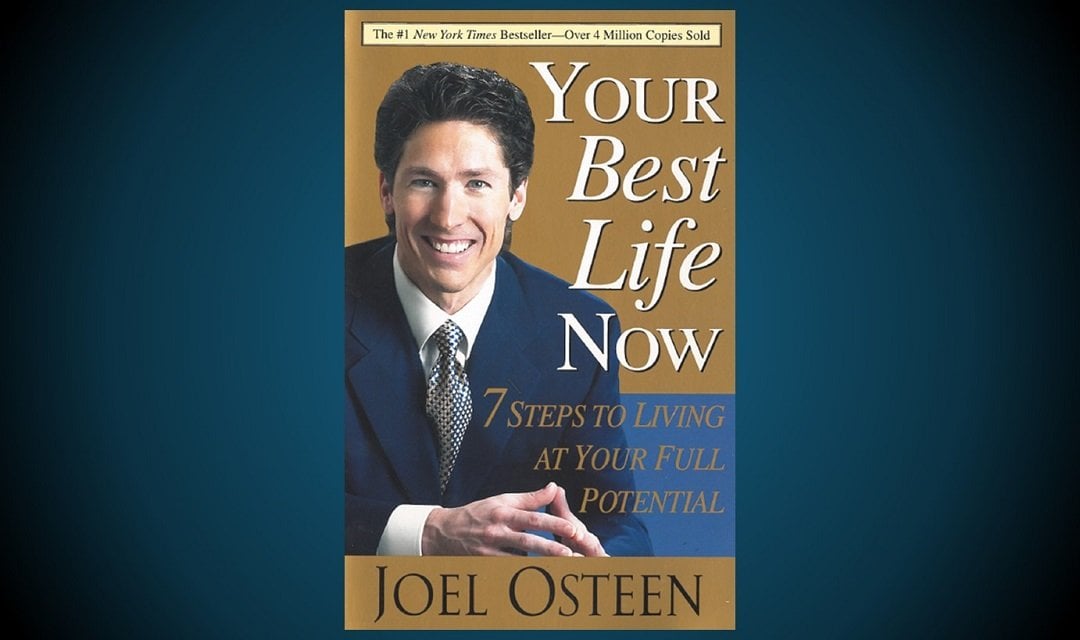This review first appeared in the Christian Research Journal, volume 28, number 2 (2005). For further information about the Christian Research Journal, click here.
C.F.W. Walther wrote, in his classic book The Proper Distinction between Law and Gospel, “The doctrinal contents of the entire Holy Scriptures…are made up of two doctrines differing fundamentally from each other, viz., the Law and the Gospel….Without the Law the Gospel is not understood; without the Gospel the Law benefits us nothing.”1
One of the most popular methods of preaching today is to leave out the law entirely and to present only the gospel. The gospel, even then, is not always the good news that through His life, death, and resurrection, Jesus has reconciled sinners to a just and holy God. What many preach is the gospel of self-esteem, a gospel that puts the emphasis on one’s self and one’s abilities to provide for one’s own needs, instead of on Christ, who supplies all of our needs. Jesus told us that only one thing was needed, and that was Himself (Luke 10:42).
Nowhere is the self-esteem gospel more prominent than in the ministry of Joel Osteen. Following the death of his father, John Osteen, in 1999, he took over as pastor of Lakewood Church in Houston, Texas, despite having completed less than one year of college at Oral Roberts University and never having preached a sermon in his life. In a December 2004 interview on Fox TV’s The O’Reilly Factor, while stating that he is an ordained minister, he admitted to having no seminary training.
Osteen’s first book, Your Best Life Now: Seven Steps to Living at Your Full Potential, rose to number one on the New York Times “Best Sellers” list in December 2004. The book’s stated purpose is to give seven principles for improving your life. Osteen writes, “By following the principles I’m going to share with you…you can be happy and fulfilled, starting today” (p. x, emphasis in original).
Principle One. The first principle that Osteen explains is “Enlarge Your Vision,” which involves obtaining God’s favor. He defines favor as “‘to provide with special advantages and to receive preferential treatment.’ In other words, God wants to make your life easier. He wants to assist you, to promote you, to give you advantages” (38). To receive this favor, he says we have to speak it out. “Throughout the day, declare, ‘The favor of God is causing this company to want to hire me. The favor of God is causing me to stand out in the crowd’” (40). In the Bible, however, God’s favor simply means His unmerited grace, and we receive this freely when we receive Christ as Savior. We neither earn it nor speak it out. It does not mean an easier life, as we can see by the lives of the apostles and other saints throughout church history. Paul praised the Thessalonians, in fact, for their perseverance and faith throughout the trials they were enduring (2Thess.1:4). A secondary meaning of grace, indeed, is the spiritual supply God provides believers so that they can bear fruit and persevere through the hardships of the Christian life (e.g., 2 Cor. 12:7–10).
Principle Two. The second principle is “Developing a Healthy Self-image.” Osteen ties this principle to having a positive attitude, then discusses the benefits of such a positive outlook.
Osteen relates the story of how his father “discovered that God was a God of increase. With that in mind, Daddy rose above the status quo of his day and broke the curse of poverty in our family” (64). Whereas Osteen assumes poverty to be a curse, and suggests that his father’s outlook brought him out of it, Paul merely called it a circumstance, and stated that he had learned to be content in all circumstances, including poverty (Phil. 4:11–13).
Osteen uses a problematic Bible version to support his teaching on the need for a positive outlook in the chapter “Become What You Believe.” He writes, “The modern-day biblical paraphrase The Message related the story about the blind men with an interesting twist: ‘[Jesus] touched their eyes and said, “Become what you believe.”’…Are you believing to go higher in life, to rise above your obstacles, to live in health, abundance, healing, and victory? You will become what you believe” (76). Jesus healed those blind men, however, not because they chose to see, but because they had faith in His ability to heal!
Osteen continues, “God doesn’t want you to drag through life, barely making it….It is not His preference for you to live in perpetual pain….Become a true believer, knowing that you will become what you believe” (76). Does Osteen really know what God’s preference is for us? God wants us to learn humility, obedience, and total reliance on Him (Eph. 4:2; 2 John 1:6; 2 Cor.1:9), and He will do whatever He must in order to get us to that point. Living in comfort, free of pain and major financial concern would cause many of us to become self-reliant and to forget about Christ and the precious price He has paid for our souls.
Osteen also explains the consequences of a negative outlook, which he relates to low self-esteem. He maintains that the reason the Hebrews didn’t enter the Promised Land was because “their lack of faith and their lack of self-esteem robbed them of the fruitful future God had in store for them….They never fulfilled their destiny, all because of the way they saw themselves” (61–62). Hebrews 3:8–19 tells us, however, that the reason the Hebrews didn’t enter the Promised Land was because of rebellion, disobedience, and their lack of faith, and that not in themselves, but in God—in other words, because of sin, a word Osteen is criticized for seldom using in his ministry.2
In another effort to bolster his view of the power of disbelief, Osteen blatantly distorts the story of God’s promise of a child to Abraham and Sarah. The Osteen version of events is that when God told Abraham that he was going to have a son in his old age, Sarah laughed in disbelief. Year after year went by and they had no children, and so Sarah told Abraham to sleep with Hagar. This resulted in the birth of Ishmael. Several more years went by and finally Sarah became pregnant. What changed, asks Osteen? “I’m convinced that the key to the promise coming to pass was that Sarah had to conceive it in her heart before she was able to conceive it in her physical body. She had to believe she could become pregnant before she actually became with child. Nearly twenty years after God spoke the promise, little Isaac was born to Abraham and Sarah” (80).
The biblical version indicates that the Hagar incident took place many years previous to the time that Sarah disbelieved God’s message and laughed. Sarah gave birth to Isaac within a year of receiving the news, and there is no reason to believe she changed her mind and believed God before her pregnancy became apparent. Osteen’s theory about Sarah’s unbelief delaying the pregnancy for many years is unfounded.
Osteen says that a healthy self-image must be based on what God’s Word says about you. Excellent advice, but unfortunately, his view of a healthy self-image isn’t biblical. He writes, “Every moment that we go around with that weak worm-of-the-dust mentality, we’re eating more cheese and crackers….It’s time to step up to God’s dining table. God has prepared a fabulous banquet for you, complete with every good thing imaginable. And it has already been paid for. God has everything you need there—joy, forgiveness, restoration, peace, healing” (84-85).
How are we to view ourselves biblically? We get a clue from the parable of the Pharisee and the tax collector in Luke18:9–14. We first see the Pharisee, who prayed, “God, I thank you that I am not like other men—robbers, evildoers, adulterers—or even like this tax collector. I fast twice a week and give a tenth of all I get” (v. 11).3 It would appear that the Pharisee’s self-esteem is quite high. As for the tax collector, “He would not even look up to heaven, but beat his breast and said, ‘God, have mercy on me, a sinner’” (v. 13). The result? Jesus said, “I tell you that this man, rather than the other, went home justified before God. For everyone who exalts himself will be humbled, and he who humbles himself will be exalted” (v. 14). Jesus restores only sinners who grieve over their own sinfulness, not those who are interested only in building their own self-esteem or material possessions.
Principle Three. Osteen is emphatic that Christians should never speak negative words as he describes the third principle, “Discover the Power of Your Thoughts and Words.” “Our words become self-fulfilling prophecies. If you allow your thoughts to defeat you and then give birth to negative ideas through your words, your actions will follow suit. That’s why we need to be extremely careful about what we think and especially careful about what we say….Your words have enormous creative power. The moment you speak something out, you give birth to it” (121–22, 129). This reflects the Word of Faith teaching that faith is a force, that words are the containers of this force, and that by using the force of faith we can speak into existence our own reality.
If we had the ability to change God’s plans with our words, then God wouldn’t be omnipotent! If our words had such great power, what could we conclude about those who have been deprived of speech? Are we to assume that they must live out their lives on earth as second-class Christians?
He continues, “If you are facing sickness today, you should confirm God’s Word concerning healing. Say something such as, ‘Father, I thank You that You promised me in Psalms that I will live and not die and I will declare the works of the Lord.’ As you boldly declare it, you are confirming that truth in your own life” (130). The psalmist actually writes, however: “I will not die but live, and will proclaim what the Lord has done. The Lord has chastened me severely, but he has not given me over to death” (Ps.118:17–18). In context, God had disciplined the writer of this psalm. Why would Osteen apply this psalm to people who are sick? It could be because he believes that the power is in the actual saying of the words, regardless of what their true meaning is in context.
Osteen writes, “God has already done everything He’s going to do. The ball is now in your court. If you want success, if you want wisdom, if you want to be prosperous and healthy, you’re going to have to do more than meditate and believe; you must boldly declare words of faith and victory over yourself and your family” (132). Osteen implies that if you don’t receive the things you feel you are entitled to, it is your own fault because you haven’t spoken those things into reality, and God has already done everything He is going to do for you. This puts all the responsibility for receiving from God entirely on the Christian. Jesus promises, in contrast, that if we seek Him first, He will meet all our needs (Matt.6:31–33) and He puts no other conditions on receiving from Him.
Principles Four through Six. The sections that cover Osteen’s fourth and fifth principles, “Let Go of the Past,” and “Find Strength through Adversity,” respectively, are neither especially problematic nor profound. Osteen strongly encourages people to help others in the section that covers the sixth principle, “Live to Give!” He writes, “We readily acknowledge this as the ‘me’ generation, and that same narcissism sometimes spills over into our relationship with God….Many people nowadays are blatantly and unashamedly living for themselves….They focus only on what they want, what they need, what they feel will most benefit themselves” (221). Ironically, the “me” generation will love this book because it’s all about “me” and what “I” can accomplish!
Osteen’s “Live to Give” principle, unfortunately, turns into a give-to-get philosophy: “If you are believing for your child to find God, go help somebody else’s child to develop a relationship with God. If you’re struggling financially, go out and help somebody who has less than you have….If you want to reap financial blessings, you must sow financial seeds in the lives of others….If you want to see healing and restoration come to your life, go out and help somebody else get well” (224, 250–51). Why not teach people to help others simply because the love of Christ is in them rather than because they can receive something back?
Later he writes that “it’s not enough to say, ‘God, I trust You. I know You are going to meet all my needs.’…First, we must trust in the Lord: and second, we must go out and do something good” (251). When it comes to healing, prosperity, and other perceived needs, this amounts to a gospel of grace plus works.
Osteen then writes about what the Corinthian Christians did in their time of need: “The Scripture records, ‘In the midst of their great trouble, they stayed full of joy and they gave generously to others.’ Notice, they sowed a seed in their time of need. They knew if they would help to meet other people’s needs, God would meet theirs” (259). The Corinthians didn’t give to get; they gave out of their love for Christ. If they had given in order to receive they would have been giving out of selfishness, and God does not reward selfishness.
Principle Seven. Few would take issue with much in his seventh principle, “Choose to be Happy.” Osteen undoubtedly has the best of intentions for his followers and does have some good advice in his book, but his unbalanced approach to Scripture emphasizes and distorts its positive teachings while avoiding unpleasant concepts such as sin, sacrifice, and, as 2Timothy3:12 puts it, suffering for the sake of the gospel. A faithful pastor will teach that there is a cost to being a disciple of Christ. Christ didn’t suffer on the cross just so we could have a great life or so that God could be a magic genie, ready to conjure up whatever we want, provided we say the right words and maintain a positive attitude. Osteen’s message isn’t a message of sin and grace, but a message of self-esteem and prosperity. Since, as Osteen rightly says, we need to get our focus off of ourselves, it would be wise to avoid this book.
— reviewed by Bob Hunter
NOTES
- C.F.W.Walther, The Proper Distinction between Law and Gospel (St. Louis: Concordia Publishing House, 1986),1.
- Jim Jones, “Evangelist’s Encouraging Words Are Hard to Resist,” Fort Worth Star-Telegram, September 25, 2004.
- Unless otherwise noted, all Scripture quotations are from the New International Version.









